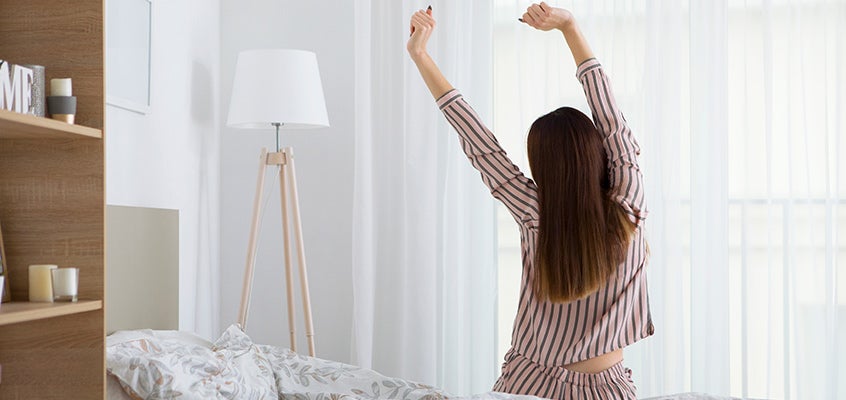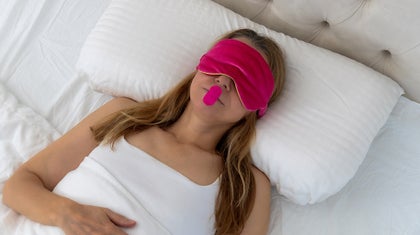How to get the best from a daytime nap
by Alec Graves on Sunday 11 August 2024
3 min read
How to get the most from a power nap
The Australian Institute of Health and Welfare has found that nearly half (48%) of Australian adults report at least 2 sleep-related issues. And internationally, there are more and more studies being done on how important regular quality sleep is to our health – including studies on how catching up on sleep on the weekend isn’t a thing.
A beneficial daytime nap might sound like a dream – but it doesn’t have to be. When you do it right, napping has benefits for mental clarity, memory and overall wellness. You just need to be mindful of how you nap to extract those benefits.
What are the benefits of a daytime nap?
Napping can be part of your regular routine, or used as a way of beating the afternoon slump and combating drowsiness and fatigue when your usual sleep cycle is disrupted. A nap can also:
Improve mood
Sleep is connected to emotional regulation. If you’re feeling a bit tired or frustrated, a brief nap can help you reset the tone of your day.
Improve creativity
Naps that end shortly after you drift off to sleep are shown to improve creative thinking for a brief period in this study published in Science Advances.
Improve focus
Skipping another coffee in favour of a nap might be the better approach when you’re struggling to stay focused. Brief naps are shown to increase memory and alertness after partial sleep deprivation.
How to take the perfect power nap
The ideal power nap doesn’t have to be an interruption to your regular sleep cycle. But how long you nap, where you nap, and the timing of that nap are all important details.
Set the scene for your nap
A restful environment is a must for both improved quality of sleep and a good quality nap, as interruptions by noise or light can affect how quickly your body dips into a restful state. Check out how to set yourself up for the best sleep ever.
Time your nap right
Napping too late in the day can make it tricky to stay on track when it comes to your actual bedtime. If you’re expecting to lose sleep overnight, such as working a night shift, you can adjust your timing to suit.
Keep your power nap short
How long you nap is important. For most healthy adults, the ideal nap time should be kept under 30 minutes to avoid the dreaded ‘sleep inertia’ that can leave you feeling groggy for hours after you wake up.
The drawbacks of napping too long
Not all naps are built the same. In fact, napping too long on a regular basis is connected to negative effects on your cardiovascular health. When timing the ideal power nap, it’s important to avoid relying on naps to cover for irregular sleep cycle.
Napping at the wrong time of day can also affect the quality of your sleep later. As a general rule of thumb, try to avoid napping at all after 3pm to ensure you’re ready for a great night’s sleep. For an alternative that will leave you feeling relaxed and improve your sleep quality, see these breathing techniques for stress relief.
Recover and recharge with Virgin Active
Improving the quality of your sleep is a quick route to better health and an enhanced overall sense of wellness, but it’s not the only one. If you’re looking for ways to incorporate more recovery in your health routines, come try a class with Virgin Active.
We offer Sound Bath and Reformer Recovery classes that are perfect for relaxing ahead of a more restful night’s sleep. We also have spa and sauna facilities for unwinding and recovering after intense workouts. To see for yourself, book a tour today.
Related articles
Unwind
3 min read
Can rest days make you stronger?
Nourish
3 min read
Food mind games: how stress affects your appetite
Unwind
3 min read
Mouth-taping sleep trends: nose vs mouth breathing facts
Enjoying our blog?
Sign up to our newsletter to get updates on training, healthy living, news and events.





